CSotD: Remembrance
Skip to comments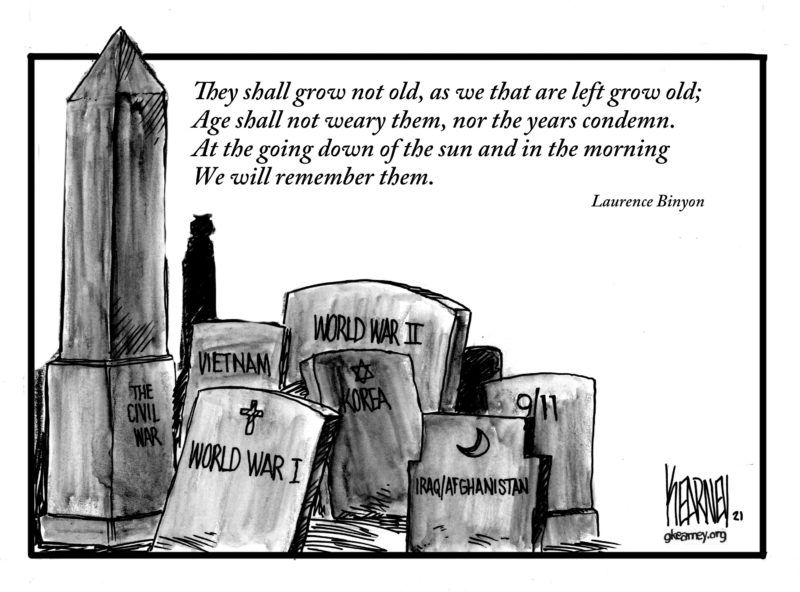
Greg Kearney offers this alternative to weeping eagles and little kids solemnly saluting. I like it.
You can readily find those saluting children and weeping eagles on your own, but I’m going to expand upon Kearney’s theme of remembrance.
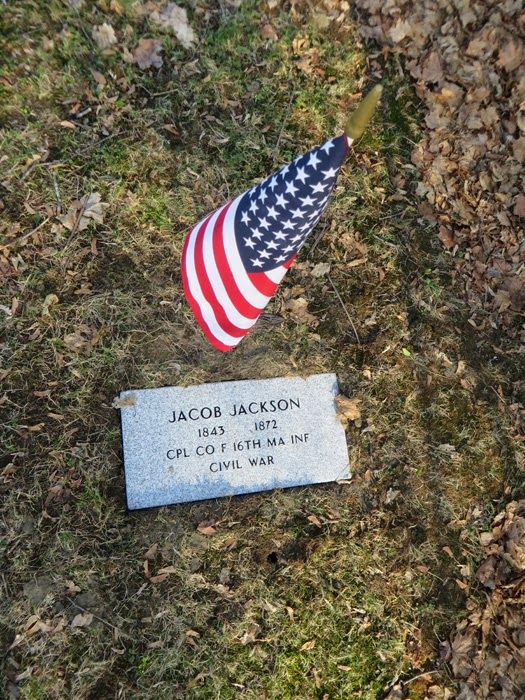
I’ll take a walk to visit my friend Jacob Jackson today, in the cemetery about a block away.
The old cemetery has plenty of Civil War and Revolutionary War vets, some of whom died in battle, but for many years, Jake’s anonymous grave was simply marked by a GAR medallion stuck in the ground at the edge of the cemetery in the potters field.
About three years ago, he finally got a headstone, from which I learned his name, and that he was a Massachusetts boy who had survived the war and somehow ended up here in New Hampshire.
Perhaps he worked in one of the mills, or maybe he was a farmhand, but he got through the war only to die before he was 30 years old, and he can’t have been here long, since nobody even passed the hat to get him a stone.
I don’t believe that dead people look up from their graves or down from a cloud, but neither do I believe that anyone deserves to be forgotten, so Jake is my friend and I remember him as best I can when I walk past his lonely pauper’s grave.
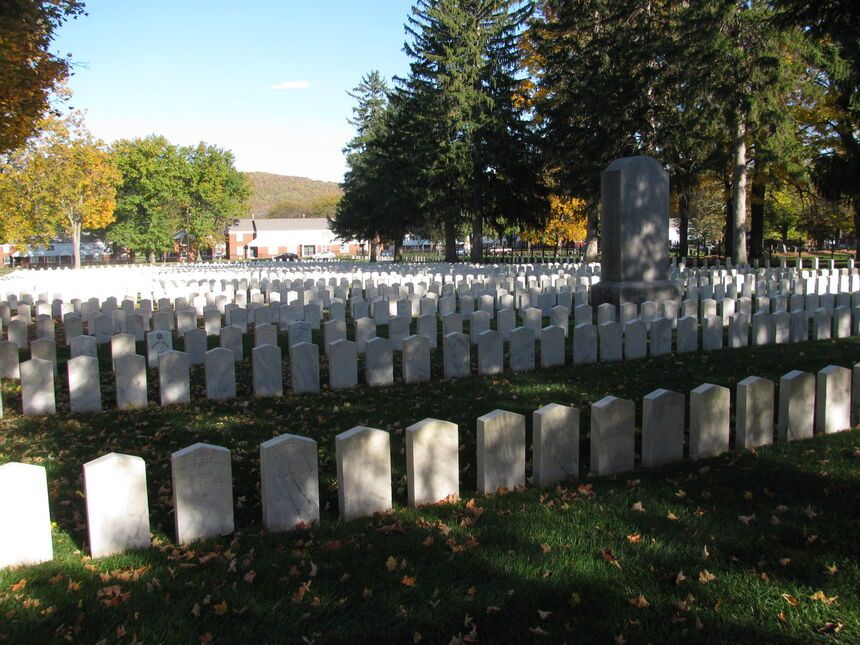
If I hadn’t felt that way before, I certainly would have after researching a children’s story that Christopher Baldwin and I created about the Civil War, for the New York State News Publishers Association’s educational program.
Writing about the Civil War in a New York setting brought us to Elmira, site of a POW camp during the war, for a story about a little girl whose brother is at Andersonville and how she deals with her bitterness towards the tattered Confederate POWs in her own town.
The girl was fiction, but we had a real man — and I’ll emphasize “a real man” — to play the role of her quiet conscience.
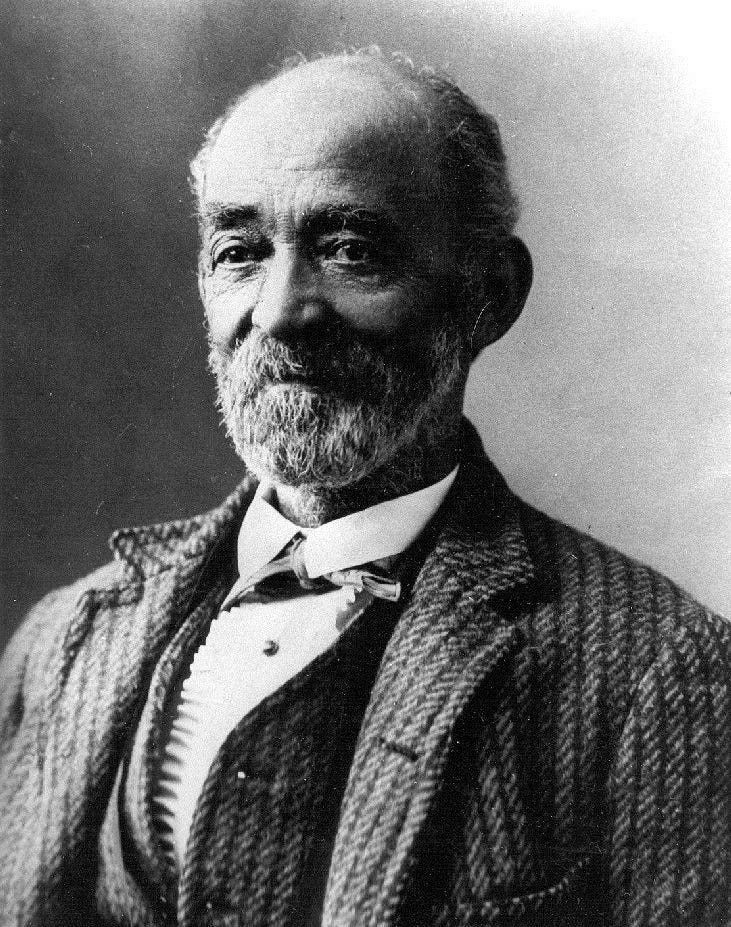
John Jones had run away from slavery in 1844 and settled in Elmira, where he became a lead conductor in the Underground Railroad, which, oddly enough, wasn’t nearly as much of a secret in Elmira as it’s depicted in stories of the time.
In fact, one day, some slavehunters appeared, only to be foiled when someone rode out to the farm to warn the dozen escapees working there, who simply melted into the woods until the Bad Guys had left town.
Another set of slavehunters found their hotel surrounded by a crowd and the authorities had to step in to get them safely on a train back South.
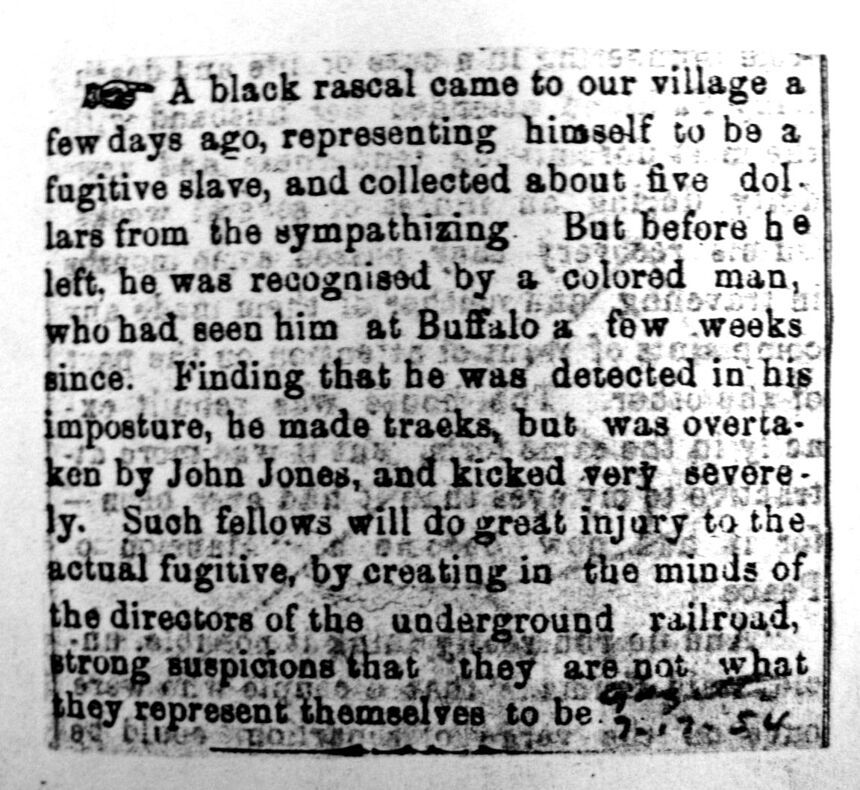
And there was this incident, recorded by the local paper in 1854.
Plus this sidebar: Jones’s wife, Rachel, was the sister of Stephen Swails, who served in the 54th Massachusetts, the “Glory” brigade of black soldiers, and was given a battlefield promotion to lieutenant, making him perhaps the first black officer in the Army.
Only it was a mistake: Swails was so light-skinned that they didn’t realize they were commissioning a Negro.
The Army apparently decided it would be easier to just leave him in place than to face the embarrassment of booting him back down into the ranks, and Swails served out the war, only to find himself, like Jacob Jackson, in an unmarked grave until recently.
But there were no unmarked graves for the Rebs who died in the prison camp at Elmira: John Jones, sexton for the local Baptist Church, had also taken on the burial concession for the POW camp, and made sure that each boy who died there was buried with his name and outfit on a slip in a small bottle around his neck, under a wooden marker with his name.
After the war, there was a movement to repatriate the dead, but, when they saw the dignity and respect afforded their sons, brothers and husbands, only a very few Confederate families chose to disturb the thousands of graves at Woodlawn National Cemetery.
There’s an almost-certainly apocryphal story that one of the young men Jones buried was a son (sometimes a nephew) of his former owner, but there’s no need to add to the truth: John Jones set a standard for charity and kindness that few of us can claim to match.
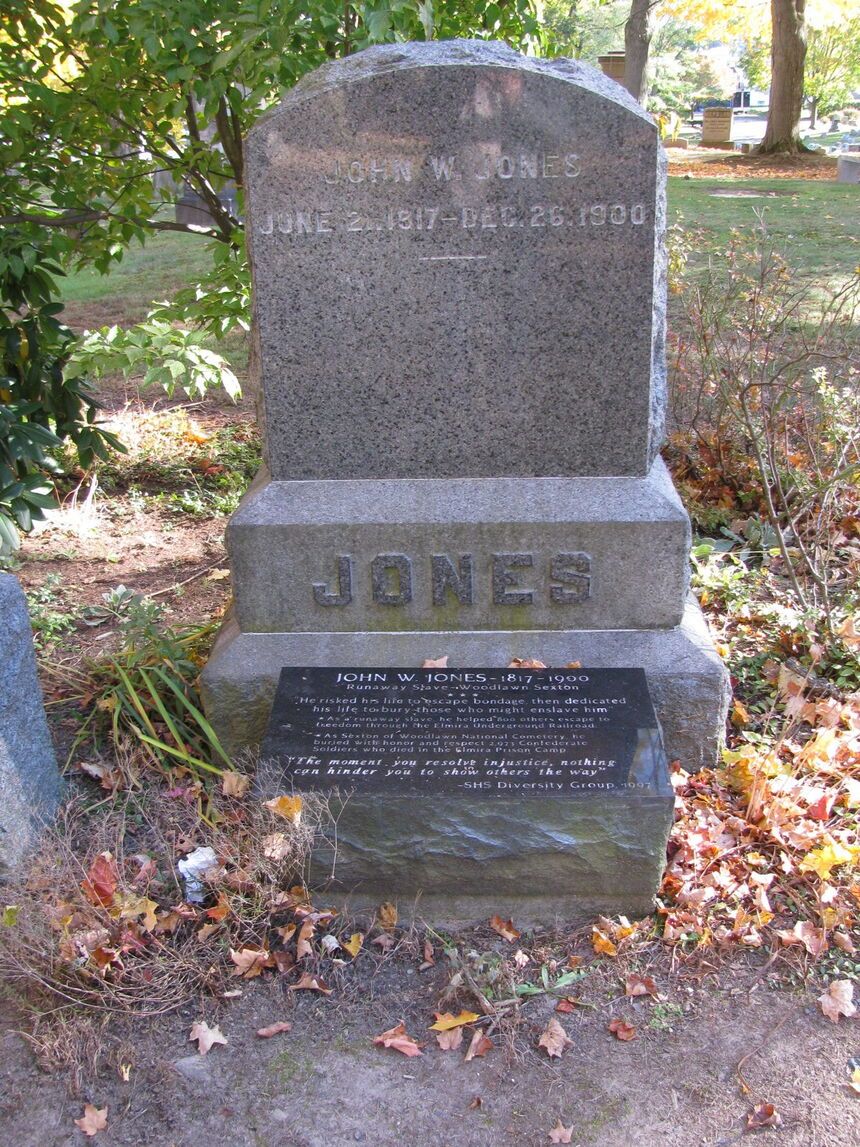
He’s buried over in the civilian section of Woodlawn, near Mark Twain, with a quote that says, “The moment you resolve injustice, nothing can hinder you to show others the way.”
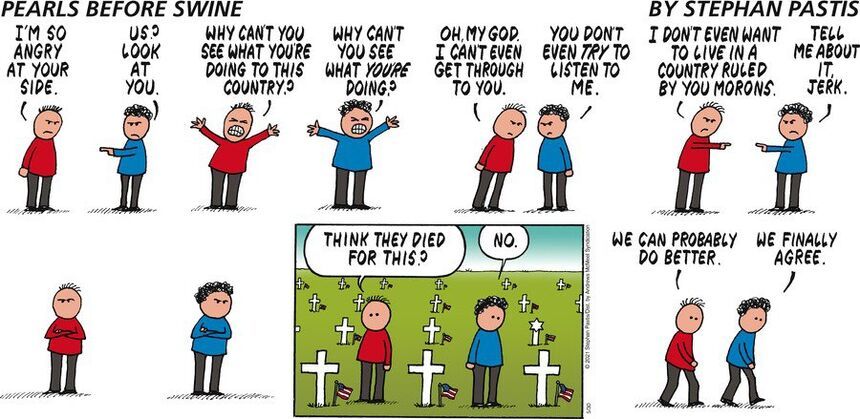
Pearls Before Swine (AMS) put it differently, but John Jones set the standard, and we could sure use a few more people like him today.
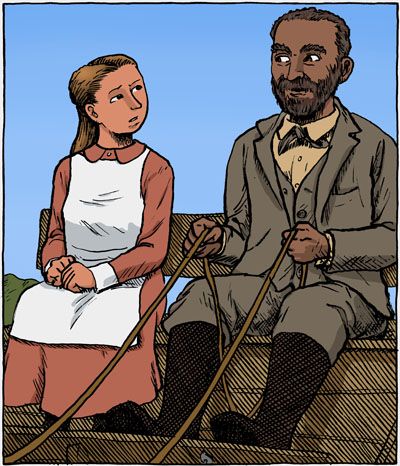
“You used to break the law,” she said, and he turned to look at her, sitting next to him on the wagon box.
But he didn’t say anything, so she spoke up again. “What you did was against the law, putting slaves on the trains to Canada.”
“Did you want to ask me a question about that?” he asked.
Betsy thought a moment. “I guess not,” she replied, but after they driven along a little further, she got up her nerve again. “How many people do you figure knew what you were doing?”
“Besides the people I was doing it with? I truly don’t know,” he admitted. “I tried to be quiet about it, so people could pretend they didn’t know, if that was what they wanted to do. What they needed to do. But I guess most of the town probably knew at least some of it.”
“I guess if they thought it was so wrong, somebody would have told on you.”
“That seems likely,” he said.
“They probably talked about it, among themselves.”
“I suppose they probably did,” he agreed.
Betsy looked across to the low mountains on the other side of the Chemung River, all red and yellow with autumn leaves. “How much did you worry about it?”
John Jones shrugged. “About people talking about it, or about somebody getting me arrested for it?”
“Both.”
“Not a bit.” He raised his hands slightly towards his chest, tightening the knot of reins in his hands and bringing the horses to a halt at Mrs. Baxter’s house.
Comments 11
Comments are closed.